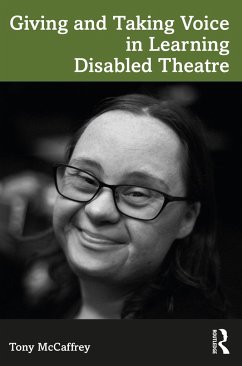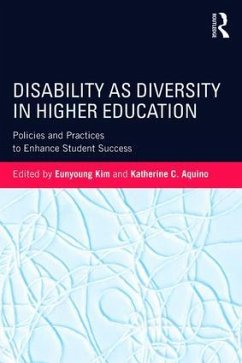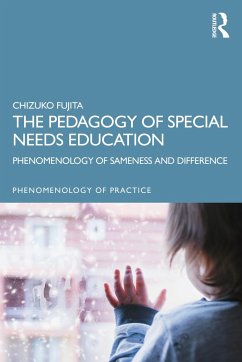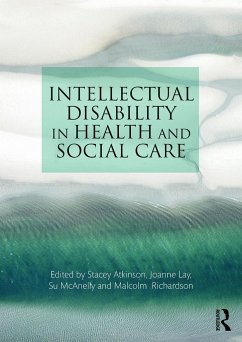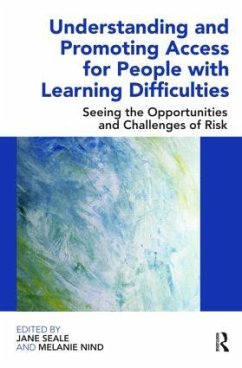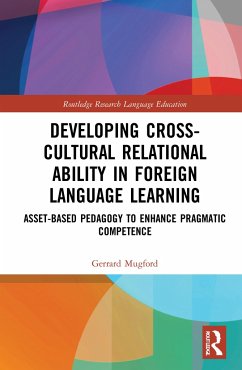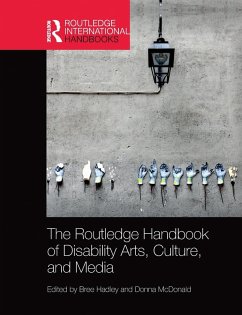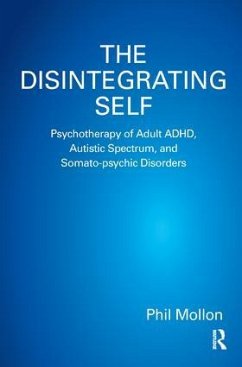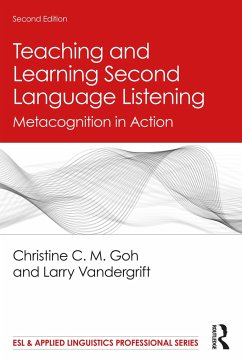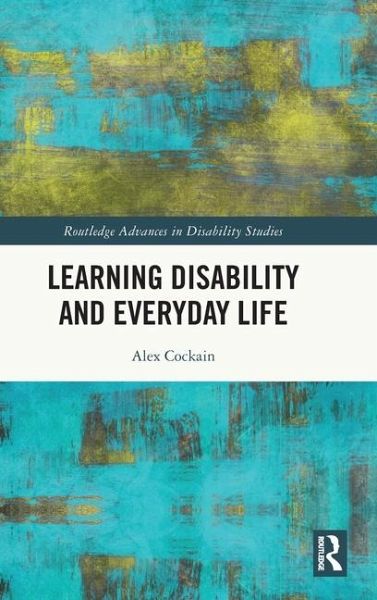
Learning Disability and Everyday Life
Versandkostenfrei!
Versandfertig in 6-10 Tagen
154,99 €
inkl. MwSt.
Weitere Ausgaben:

PAYBACK Punkte
77 °P sammeln!
Learning Disability and Everyday Life brings into conversation ideas from social theory with "thick" descriptions of the everyday life of a middle-aged man with learning disabilities and autism.This book is markedly ethnographic in its orientation to the gritty graininess of everyday life-eating, drinking, walking, cooking, talking, and so on-in, with, and alongside learning disability. However, preoccupation with, the "small" coexists with a gaze intent upon capturing a bigger picture, to the extent that the things constituting everyday life are deployed as prisms through and with which to cr...
Learning Disability and Everyday Life brings into conversation ideas from social theory with "thick" descriptions of the everyday life of a middle-aged man with learning disabilities and autism.
This book is markedly ethnographic in its orientation to the gritty graininess of everyday life-eating, drinking, walking, cooking, talking, and so on-in, with, and alongside learning disability. However, preoccupation with, the "small" coexists with a gaze intent upon capturing a bigger picture, to the extent that the things constituting everyday life are deployed as prisms through and with which to critically reflect upon the wider worlds of dis/ability and everyday life. Such attention to the small and the big-the micro and the macro-allows this book to explore the ordinary and everyday ways meanings about normalcy and abnormalcy, ability and disability, are put together, enacted, practised, made (up)-in the sense of constituting and fabricating-and, crucially, accomplished through and between people in specific, and invariably contingent, sociocultural, discursive, and material conditions of possibility.
This book will be of specific interest not only to students and scholars of disability but also to persons with lived experiences of disability. This book will also be of interest to students and scholars of anthropology and sociology.
This book is markedly ethnographic in its orientation to the gritty graininess of everyday life-eating, drinking, walking, cooking, talking, and so on-in, with, and alongside learning disability. However, preoccupation with, the "small" coexists with a gaze intent upon capturing a bigger picture, to the extent that the things constituting everyday life are deployed as prisms through and with which to critically reflect upon the wider worlds of dis/ability and everyday life. Such attention to the small and the big-the micro and the macro-allows this book to explore the ordinary and everyday ways meanings about normalcy and abnormalcy, ability and disability, are put together, enacted, practised, made (up)-in the sense of constituting and fabricating-and, crucially, accomplished through and between people in specific, and invariably contingent, sociocultural, discursive, and material conditions of possibility.
This book will be of specific interest not only to students and scholars of disability but also to persons with lived experiences of disability. This book will also be of interest to students and scholars of anthropology and sociology.





